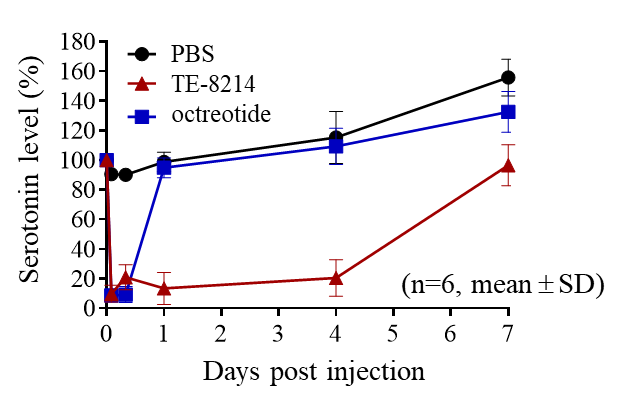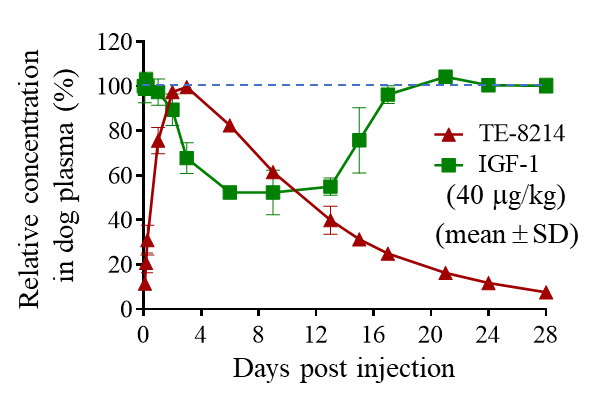
The Phase 1 clinical trial was completed in Australia: https://clinicaltrials.gov/study/NCT06372652
TE-8214 is an ultralong-acting octreotide analogue. Its molecular structure is an octreotide derivative that is extended with a short peptide linker to its N-terminal and a fatty acid bundle with 2 fatty acids conjugated to the linker.
In NOD-SCID mice transplanted with a human endocrine QGP-1 tumor cells, TE-8214 could inhibit serotonin secretion from the tumor for 96 hours, while octreotide could do so for less than 8 hours. In healthy SD rats, TE-8214 could inhibit insulin-like growth factor-1 (IGF-1) secretion for 7 days.
In healthy beagle dogs, TE-8214 could inhibit growth hormone and IGF-1 secretion for 14 days. It is estimated that TE-8214 can be dosed in human patients once every 3-4 weeks and it is not necessary to switch from acute-use octreotide to its slow-release formulation. TE-8214 can potentially replace acute-use octreotide and other somatostatin analogs and their slow-release LAR formulations, for short term and long-term applications in treating acromegaly and various carcinoid syndromes associated with neuroendocrine tumors (NETs). A formulation with TE-8214 can be administered with a thin syringe needle and will not cause nodules at the injection sites.

The molecular structure of TE-8214.

TE-8214 of a single dose exhibited a prolonged inhibitory effect on serotonin secretion in mice transplanted with a human QGP-1 neuroendocrine tumor.

A single dose TE-8214 inhibited IGF-1 secretion for more than 7 days and weekly administrations if TE-8214 caused steady suppression of GH in normal SD rats.

The kinetics of a single subcutaneous dose of TE-8214 and its effects on IGF-1 levels in beagle dogs.

